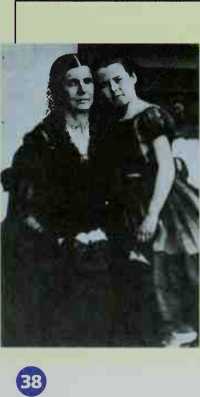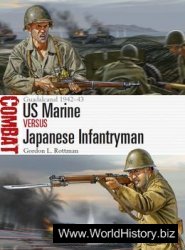As more Southern states left the Union in January 1861, they took over federal property within their borders. Forts and weapons were among the first things to be seized.
Sumter Surrounded. Most federal posts across the
South gave up quickly. Southern militia commanders allowed Union soldiers to return home unharmed. But Union commanders in a few key Southern ports refused to give up without orders. One of these was Major Robert Anderson. He and si. xty soldiers held a heavy brick fort in Charleston Harbor called Fort Sumter.
As winter turned to spring, Anderson’s men were getting worried. They knew they were surrounded and couldn’t help noticing the new rows of cannons facing the fort from the harbor. The threat was clear: If Anderson didn’t get going and fast, the South Carolina militia would force him out.
Anderson had other problems as well. He was running out of food and short of ammunition. Some well-placed Confederate cannon shots had already turned back a Union ship filled with supplies and 200 reinforcements.
Meanwhile, the South got its own president. Former U. S. Senator and Secretary of War Jefferson Davis was elected to lead the seceding states, which called themselves the Confederate States of America. On February 18, 1861, Davis took office while spectators sang "Dixie,” the new Southern anthem.
Lincdln Takes Office. In Washington, the new president was to take office on March 4. Death threats had been made against Lincoln, so the president-elect from Illinois sneaked into the capital on a train just before the inauguration.
The War Between the States had not yet begun. In his inaugural speech Lincoln still offered hope that bloodshed could be avoided: "Though passion may have strained, it must not break our bonds of affection.”
Sumter Attacked. Nevertheless, just after he took office, Lincoln sent reinforcements to Fort Sumter. When word came to the Confederates that relief for Fort Sumter was on the way, Davis decided to act. He ordered the commander in Charleston, Brigadier General Pierre Gustave Toutant Beauregard, to demand that the Federals leave Fort Sumter or else.
Anderson, in reply, hinted to the Confederates that he would have to leave Sumter by April 15 due to lack of supplies. On the other hand, if help came in time, he might just stay and fight.
This was too much for the Confederates; they sent a short reply: "...we have the honor to notify you that [the General] will open the fire of his batteries on Fort Sumter in one hour."
At 4:30 A. M. on April 12 the Confederates fired the first shot of the Civil War. Huge cannonballs and exploding shells blasted the fort and set it on fire. A day and a half later, Anderson hung out a white flag. For all the noise

Though codes and ciphers were used during the Civil War, most spying was done by amateurs. Some of the most valuabie spies were women. They were iess iikely than men to be suspected and, if caught, iess iikely to be hung. Among them was a Confederate widow. Rose Greenhow, Greenhow was Southern by birth, and when war broke out she made no secret of her Confederate sympathies.
Living in Washington, Greenhow extracted important information about troop movements from friendly Union officers. In the first months of the war, she helped tip off General Beauregard to the Federal march to Manassas. As a result. Southern reinforcements arrived in the nick of time.
Because of her social standing. Union authorities were reluctant to arrest her. Still, Greenhow's spying
Proved so relentless, they had to do something. She was put under house arrest, but amazingly, continued to send out messages. The widow simply stuffed the information into her daughter’s shoes.
Finally exiled to the South, Greenhow eventually went to England and wrote a book about her experiences.
It made her famous in Europe and increased sympathy for the Confederate cause.
She left England abruptly in August 1864, perhaps carrying a secret message for Jefferson Davis. Off the North Carolina coast, her blockade runner, the Condor, ran aground. With a Union picket boat closing in, Greenhow again faced the prospect of arrest and prison. Along with several others, she tried to escape in a small boat. The tiny craft capsized in heavy seas. Rose Greenhow, weighed down by her sodden clothes, drowned.
And firepower, little blood was shed. One man (Union) and one horse (Confederate) were the only casualties.
Confrontation at Manassas. The war was on.
Thousands of volunteers streamed into Washington, answering Lincoln’s call for recruits. The Union had few experienced generals (most Southern officers had already resigned), but Lincoln found a likely commander in Irvin McDowell. McDowell knew his green troops were not nearly ready to fight. Luckily for the Union army, the spring saw no major battles.
'ToHr little army...has met the grand army of the enemy and routed it.... We have taught them a lesson in their invasion of the sacred soil of Virginia."
—Jefferson Davis
Ready or not, McDowell’s army moved south from Washington in mid-July. The 35,000 Union soldiers formed the largest fighting force ever seen on the continent. Their aim was to cut the rail lines at Manassas,
Virginia, and march on Richmond, the Confederate capital.
General Beauregard, the winner at Fort Sumter, moved up to block the Union army. He had gotten news of the invasion fi'om a Confederate spy in Washington (see sidebar). Beauregard’s troops, like McDowell’s, were inexperienced. Still, the Southern soldiers were convinced that each could whip a dozen Yankees. Both sides thought the war would be over in no time.
Battle at Bull Run. The Confederates formed their line along Bull Run Creek. On the morning of July 21, as picnicking spectators eagerly watched, McDowell sent his forces across the stream. The confident Yankees sang as they marched to attack: "We’ll hang Jeff Davis from a sour apple tree.” They smashed into the Confederate positions on the left, driwng the Rebels back.
The center of the Southern line, however, had not panicked. A Virginia brigade led by Thomas J. Jackson had been sent up to help hold the Rebel position. And they were holding it—the Union could not move them. One besieged officer shouted to his troops to look at Jackson’s fresh Virginians, standing "like a stone wall!” The name stuck; Jackson became “Stonewall” fore er.
In the late afternoon. Confederate General Beauregard counterattacked, ordering his men to charge, yelling like furies. Confederate reinforcements bolstered the attack, and the teiTified Union army fell to pieces. TeiTificd spectators and panicked soldiers ran from the hloody field, "skedaddling back to Washington.”




 World History
World History









